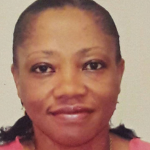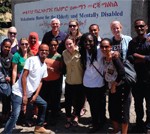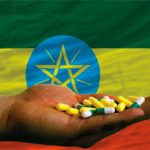Adding fuel to the rheumatic fire, the population of Nigeria is expected to approximately double by 2050.4 When asked how his country should prepare for the inevitable rise in arthritis patients, Dr. Adelowo says, “We need to establish more centers to train residents for the postgraduate fellowship diplomas in rheumatology. Also, general practitioners will need instruction in the diagnosis and management of common rheumatological diseases such as back pain, osteoarthritis, rheumatoid arthritis, spondyloarthropathies and gout, as well as connective tissue diseases. This will be done as part of the mandatory recertification for all medical practitioners. Such trained doctors can handle basic management of these cases.
‘To help remedy the situation in Ethiopia, where there are no rheumatologists, Canadian and American physicians are currently working with local experts to advance training & education.’ —Dr. Mody
“We have seen internal medicine resident doctors become interested in rheumatology during review courses (preparing for the fellowship examinations). It was during this time that they developed insight into the scope and pattern of rheumatological disease.
“We must also facilitate the introduction of rheumatology into the curricula of all medical schools in the country. Presently, only about 10 medical schools do so out of the more than 30 medical schools. Fortunately, the body regulating tertiary education in Nigeria, the National University Commission (NUC), has approved compulsory rheumatology lectures in our medical schools. Efforts need to be doubled in the public health education programs, and specialist rheumatology clinics and hospitals need to be established in all the regional zones in the country. The good news for Nigeria is that more residents are training in rheumatology here than anywhere else in Africa. However, there is much work to be done.”
The View from Cameroon

Marie Doualla Bija, MD
Marie Doualla Bija, MD, couldn’t agree more. Dr. Doualla, president-elect of the African League of Associations for Rheumatology, is one of 13 rheumatologists in Cameroon, a country of roughly 23 million people.4
Dr. Doualla, professor of rheumatology on the Faculty of Medicine and Biomedical Sciences at the University of Yaoundé in Cameroon, says, “We have created a formalized plan to train rheumatologists in Cameroon and have submitted it to the government. They want us to prove that we will be able to care for local rheumatic diseases, and that we understand the epidemiology of these conditions. To go forward, we will need a sponsor to accompany the creation of the residency program and to bring teachers into the project; now, there are only two available in the entire country.”



